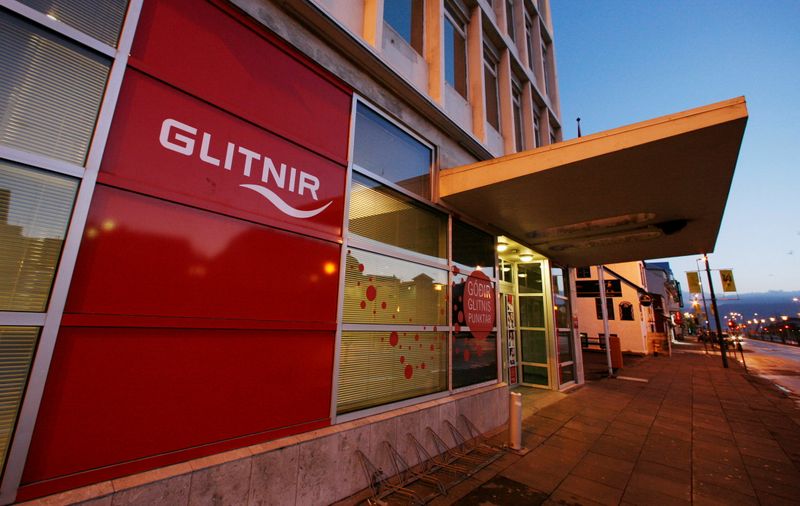By Jacob Gronholt-Pedersen and Abhinav Ramnarayan
COPENHAGEN (Reuters) - Iceland intends to launch an initial public offering (IPO) of Islandsbanki by next month, in a first step to curbing the state's ownership of the banking sector well over a decade after it imploded during the 2008 financial crisis.
The North Atlantic nation, whose banking collapse was an extreme example of the greed and mismanagement of the global financial system, said on Thursday it would begin to normalise its financial sector by selling at least 25% of the bank's existing shares by next month.
Islandsbanki, formerly Glitnir, was one of the three lenders that failed within days of each other in 2008, prompting a state takeover that resulted in the restructuring of existing banks and creation of new ones.
Islandsbanki, which became the country's first listed company in 1904, saw its share price fall by 75% in just a month in September 2008 before it was nationalised. At the time, the Icelandic government paid 600 million euros ($732.24 million) for a 75% stake, which included the issuance of new capital.
Today, Islandsbanki could be valued upwards of $1.1 billion in the IPO, a source familiar with the transaction said, asking not to be named.
Citing successful capital raises by banks, including NatWest and Greece's Alpha Bank, he said there was renewed interest in financial institutions across Europe as the COVID-19 crisis is not primarily a financial crisis, banks are generally well capitalised and most are heavily provisioned.
OVERLY EXPOSED
Iceland began in the early 2000s to promote itself as a low-tax island economy that could serve as a base for offshore investment and finance.
At one point, the country's banks held assets worth ten times the nation's gross domestic product, including large assets abroad, making them overly exposed when the financial crisis hit.
Capital controls and a subsequent fall in the Icelandic currency helped to restore Iceland's competitiveness.
It began lifting capital controls in 2015, bringing it out of financial isolation, while a tourism boom fuelled economic growth.
"The listing of Islandsbanki on Nasdaq Iceland is an important first step to reduce the Icelandic state's significant ownership in the banking sector," Finance Minister Bjarni Benediktsson said in a statement.
"Thereby we move one step closer to a healthier environment in our banking sector, such as those of our neighbouring countries in the Nordics," he said.
Arion Bank, one of the other three large banks that collapsed in 2008, was the first to list in 2018. Arion was taken over by the state in 2008, but its creditors took control of the bank in 2010.
Islandsbanki has a domestic market share of around one-third, around 740 employees and last year posted pretax profit of 9.32 billion Icelandic crowns ($77 million).
The bank, which has a BBB/A-2 credit rating at S&P Global (NYSE:SPGI) Ratings, aims to deliver a return on equity of between 8% and 10% by 2023 and above 10% in the long term.
The state holding company has hired Citigroup (NYSE:C), J.P. Morgan, Barclays (LON:BARC) and HSBC to help coordinate the IPO.

($1 = 121.0400 Icelandic Crowns)
($1 = 0.8194 euros)